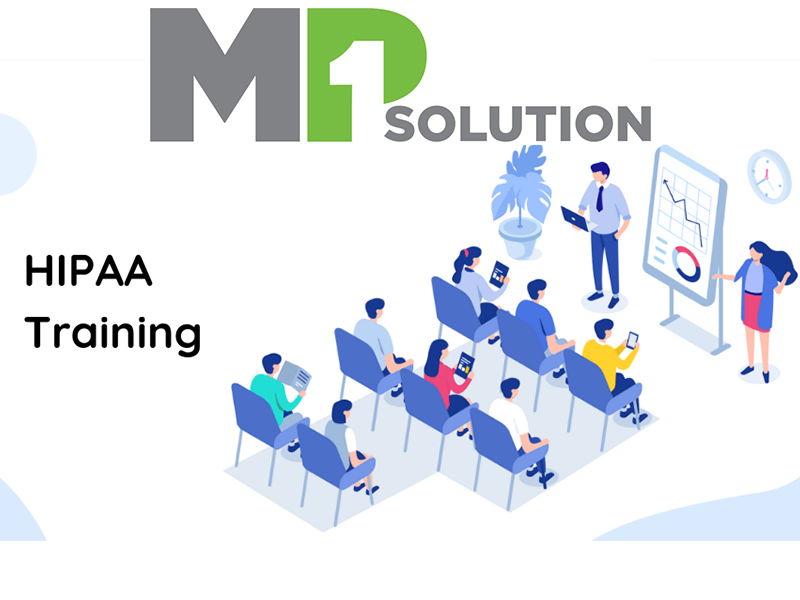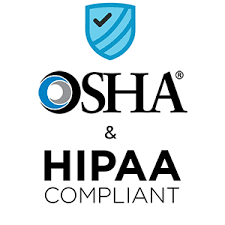The Necessity of HIPAA Training

The Health Insurance Portability and Accountability Act of 1996 (HIPAA) is one of the most comprehensive, wide-ranging pieces of legislation that affects the health care system of the United States. HIPAA is a series of regulations enforced by the Department of Health and Human Services (HSS) to modernize and protect the flow of health information.
HIPAA compliance is paramount as it entails the safeguarding of sensitive information called protected health information (PHI). This includes insurance information, demographic data, medical histories, test results, and other data that can be used to identify the patient.
Naturally, the privacy and security of any health-related information becomes a major concern when countless people require access to a person’s PHI. From healthcare professionals like doctors and nurses to third-party organizations like pharmacies and researchers, PHI passes through many hands.
There are also financial consequences to consider. HIPAA fines range from $100 to $50,000 per incident and failing to address HIPAA can cause financial issues for businesses.
Given its apparent importance, companies should actively conduct security risk assessments to protect data. However, it has been estimated that only 18% of companies have carried out proper safeguarding procedures over the last 12 months. While 70% of companies have experienced data breaches over the same time period.
This rise in data breaches creates a challenge for companies and healthcare providers. Fortunately, this can be solved by HIPAA certification programs that monitor compliance and provide training.
HIPAA Certification
Achieving the minimum standards required for data security and patient privacy is what HIPAA certification ensures. It guarantees that organizations have been guided by HIPAA to implement the required policies and procedures.
While the HSS does not endorse any certification program, HIPAA certification retains its importance. Companies and their workers benefit from programs designed to ensure HIPAA compliance. Certification also signals that an organization’s services have met HIPAA standards.
The different types of HIPAA certification include:
- Certified HIPAA Professional (CHP) – Covering basic HIPAA regulations and its history, this is considered a level-1 certification program. This is best for healthcare providers, employees at healthcare organizations with access to PHI, administrative staff, IT security staff, and the like. There are no educational prerequisites for this.
- Certified HIPAA Administrator (CHA) – Compared to CHP, this certification is more comprehensive and is primarily used by those directly handling the delivery of healthcare services such as doctors, nurses, and hospital administrative staff. This covers data privacy compliance and the interaction of HIPAA legislation with the dissemination of sensitive medical information from patients.
- Certified HIPAA Security Specialist (CHSS) – Requiring a CHP certification, the CHSS is a higher-level certification. The management of electronic PHI (ePHI), security standards, and practices are the core technical aspects this certification deals with. IT employees involved in healthcare organizations are the ones primarily concerned with this type of certification.
- Privacy and Security Awareness Training – Cybersecurity awareness training and role-based security information training are the main concerns of this certification. Not necessarily confined to matters involving HIPAA, this certification is a more general course. IT administrators, executives, and managers avail of such training.
HIPAA Compliance
HIPAA compliance addresses the fulfillment and satisfaction of HIPAA regulatory standards. It entails that PHI is handled by organizations that have the proper physical, network, and process security measures in place.
HIPAA regulation consists of several rules instituted over 20 years. Some significant HIPAA Rules include following:
- HIPAA Privacy Rule: This establishes national standards for safeguarding PHI. The stipulations are concerned with a patient’s right to access PHI, healthcare provider’s right to deny access to PHI, and related concerns towards access.
- HIPAA Security Rule: This establishes national standards for safeguarding ePHI. This concerns safeguards regarding maintenance, transmissions, and handling of ePHI, including physical, administrative, and technical ones. The safeguards include:
- Constraints for the transfer, removal, disposal, and reuse of ePHI.
- Using user IDs, emergency access procedures, encryption and decryption, and the like to access control.
- Policies regarding the access and the use of workstations and electronic media.
- Limited or authorized access to ePHI within the organization.
HIPAA Training
Unlike HIPAA certification, HIPAA training is mandated as an Administrative Requirement of the HIPAA Privacy Rule and an Administrative Safeguard of the HIPAA Security Rule. These rules stipulate that it is crucial to adhere to HIPAA requirements. Violations may result in criminal indictments and high fines for noncompliance.
HIPAA requirements are highly complex and easily confusing, therefore applying for HIPAA training is important.
What is included in these awareness and training programs are specific to the role of each individual that has contact with PHI. No specific HIPAA training requirements exist but a basic training course should include the following:
- HIPAA definitions and background
- The importance of HIPAA
- HIPAA Privacy and Security Rules
- Patient rights
- Employee sanctions
- Potential Violations
- Safeguarding ePHI
- Disclosures of PHI
Additionally, to ensure relevance to trainees and effectiveness in execution, such programs will be compiled into multiple sessions instead of only one six-hour session. This is because only one session is likely to be ineffective in fitting every element of the HIPAA Privacy and Security Rules.
OSHA Compliance

Named OSHA, or the Occupational Safety and Health Administration, this agency under the United States Department of Labor regulates health and safety in the workplace. They do this by setting and enforcing standards as well as providing training, education, and assistance.
There is an intersection of interests between OSHA and HIPAA regulations as both deal with PHI. OSHA’s Recordkeeping Requirement mandates certain illnesses or injuries be recorded or reported.
When circumstances or exposure in the workplace cause or contribute to the development of a condition or negatively affect a pre-existing condition it is considered a work-related illness or injury.
If the following events are caused by work-related injury or illness, OSHA regulations specify it should be reported:
- Time away from work
- Medical treatment beyond first aid
- A significant injury or illness diagnosed by a licensed healthcare professional
- Restricted work or transfer to another job
- Loss of consciousness
- Death
Additionally, cases that involve fractured or cracked bones, cancer, a punctured eardrum, or chronic irreversible diseases must also be recorded.
